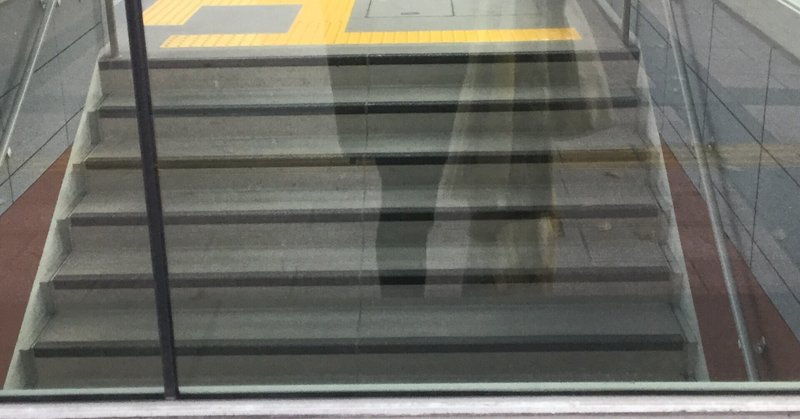
【英日対訳】これが「障害を除去する」という意味だ by Dr. @ejwillingham | 米誌フォーブス (2016.7.27) #726追悼 #PrayForSagamihara
This Is What Disability Erasure Looks Like
これが「障害を除去する」という意味だ
by Emily Willingham
エミリー・ウィリンガム
はじめに
The suspect's desire to erase disabled people lies at the extreme end of the disability attitudes spectrum. How close are all of us to that end?
「障害者をこの世から除去したい」という容疑者の願望は、障がい者に対する”態度”の範囲では最も極端なものの発露といえる。
では、私たちの”態度”はその「最も極端なもの」のどの範囲内にあるのだろうか?
これは、2016年7月26日未明、相模原の障がい者介護施設で戦後史上最悪といわれる大量刺殺事件が発生し、障害者19人が死亡し26人が負傷したというこの凄惨な事件の翌日、米誌『フォーブス』に掲載された論考のリード文だった。この論考を書いたのは生物学者で、「当事者」というよりは「観測者」の視点から書かれている。当時も、公開するか悩みに悩んだが、「この記事が現代の人類社会に問い掛ける内容は、やはりいまの日本社会に必要な言説だ」と考え、『超訳』でしか表現できなかったものを1年後、改めて原文に忠実な『翻訳』としてTumblrに公開した。
以下は、これを一部修正したものの転載である。
ソース
本編
その日は、アメリカの障がい者コミュニティにとって祝福すべき日だった。 1990年7月26日に 『アメリカ障がい者法( Americans with Disabilities Act )』が施行されて以来の進歩を振り返りつつ、なお残された課題について前向きに考える日となる筈だった。
It was a day when the U.S. disability community should have been celebrating the progress made since the Americans with Disabilities Act was signed on July 26, 1990, and looking forward at work yet left to do.
ところが世界は、かつてナチスが彼らを「この世から消し去る」と宣言して以来、障がい者を標的とした襲撃の中でも最も悪質で残虐な事件が起きたという報道で、その日を迎えることになる。しかもその事件は、日本で起きた。
Instead, the world awoke to news of one of the worst and deadliest targeted attacks on disabled people since the Nazis decided to erase them from the earth. This time, it was in Japan.
この襲撃で死亡した人びとが、障がい者施設の入所者でなければ―ロックコンサートの観客や、レストランの客や、大学構内の学生であれば―あらゆるソーシャルメディアの世界で瞬く間に恐怖が広がり、怒りが燃え上がったことだろう。
If the people who died in that attack hadn’t been disabled residents of an institution - if they had been at a rock concert or a restaurant or a college, instead - the burst of horror and outrage would have flamed out from every social media platform.
だが実際は、この原稿を書いている現時点においても、トレンド入りするようなハシュタグや、ホットなまとめはつくられていない。少量のフォローアップ記事が配信されているだけで、それも大部分は通信社からのものだ 。たしかに、「西欧諸国で起きたことでないこと」は一因ではあるかもしれないが、真の要因には程遠い。
Instead, as I write this, there are no related trending hashtags on Twitter, no hot takes rolled out. Just a few news stories, mostly from wire services. Sure, the fact that it’s not a “western” nation plays a role, but there’s far more to it than that.
この事件でもっとも際立つのは、実行犯の26歳の日本人の男が、犯行に及ぶことを全く隠そうとしなかったことだ。英紙ガーディアンによれば、この男は犯行に及ぶ二週間前に、国会の下院議長(衆議院議長)に手紙を直接渡そうとし、措置入院をさせられていた。
What stands out most from those stories is that the person who did this, a 26-year-old Japanese man, made no secret that he intended to do it. According to the Guardian, the man was institutionalized for two weeks earlier this year after trying to pass a note to the speaker of the lower house of Japan’s parliament.
男はこの手紙に、計画していること、そして実践したことを克明に記していた。
In that letter, he described exactly what he planned to do…and went on to do:
植松はこの計画に基づく襲撃により、19人の命を奪い、26人を負傷させた。
(※手紙の「計画」部分の抜粋は悪用や誤解を招かないよう省略)
*’Letter’ part omitted to avoid potential misuse and/or misinterpretation
He killed 19 people in his attack and left 26 others injured.
「19人」──これが「19人の子ども」「19人の教師」あるいは「19人のレストラン客」だったら、どうなっていただろう?おそらくツイッターでトレンド入りするハッシュタグは『 #ABreakupIsBadWhen ( #こんな時は失恋したくない )』などではなく、この事件に関連するものにとって代わられていただろう。
Nineteen people. What if that read, “19 children,” or “19 teachers,” or “19 restaurant-goers”? I’m guessing perhaps a related Twitter hashtag might have replaced #ABreakupIsBadWhen today.
もし植松の手紙に、子どもや、教師や、レストラン客を殺す計画が書かれていたらどうなっていただろう?おそらく政府当局は、よりいっそうの注意を払っただろう。
What if his letter had instead referenced his intention to kill children or teachers or restaurant-goers? I’m guessing that authorities would have paid a lot more attention to it.
だが手紙にはそうは書かれていなかった。 それらの人びとが暮らす施設で働いたことのある人間が、その施設の入所者を殺すことを企図していると、障がい者を殺したいという強い願望があることが記されていた。しかし当局は何の注意も払わず、気にもかけず、備えもしなかった。
But it didn’t say that. Instead, it referenced a strong desire to kill disabled people. From a man who worked in a facility where those people lived. And who threatened to kill people in that facility. Which nevertheless appears to have been unwarned, unaware, unprepared.
この容疑者の願いは、地球上から障がい者を消し去ることだった。
The suspect’s stated desire was to erase disabled people from the earth.
これこそが、障がい者に対する態度の行き着く先に突然現れる「断崖絶壁」ポイントだ。だがそのポイントは、「なだらかな傾斜」の続いた先に生じたものなのである。このような告白の手紙を受けて、「何もしない」ということも、その一端を成している。
I realize that’s the sudden cliff at the extreme end of the disability attitude spectrum. But that spectrum is a continuum, and failure to act on a letter like that is part of it.
そして、次のような傾向も、この「断崖絶壁」ポイントに通じている。
You’ll also find the following clustered toward that deadly dropoff:
・『Me Before You(邦題:世界一キライなあなたに)』のような映画を 、「障がいを持ちながら生きるよりも死んだほうがまし」という考えを広めているのに、 「悲劇的なロマンス」作品としか捉えられない社会
※この記述に関しては映画の訳者から指摘あり
- A society that thinks a film like Me Before You is tragically romantic, instead of promoting the idea that it’s better to be dead than disabled.
・ 自閉症の男性は地面に座り込みながらトラックのおもちゃで遊んでいただけなのに、警察の銃の標的にされ、彼を救おうとした黒人男性に弾が当たってしまった事件
- An autistic man sitting on the ground, playing with a toy truck, and being the real target of the bullets that found there way to the black man trying to protect him.
・自閉症の人間を支援する目的で設立されたと主張するが、その責任者らは意図的かつ不可逆的に、その守るべき彼らを虐げ、蔑ろにする自称・慈善団体
- Organizations that purportedly exist to help autistic people but whose leaders consistently, willfully and intractably degrade, disrespect and ignore them.
・障がいのある人びとを嘲笑する大統領候補と、その嘲笑を擁護する人びと
- Presidential nominees who mock disabled people and the people who defend the mockery.
・本来ならいかに「負担」があったとしても、どんな状況であっても、さらし者にされるほど罪深いことのはずなのに、障がいのある子どもを殺してしまう親に対して寄せられる「同情や共感」
- Pity and sympathy for parents who murder their disabled children, when any honest dealer would admit that under any other circumstances, no matter how much “burden” played a role, the parents would be pilloried.
・障がいのある子どもへの一定程度の虐待を許してしまう制度の存在
- A system that leaves openings for this level of abuse of disabled children.
”普通”に見えない振る舞いや行動はすべて公に嘲笑されてよいとする社会
- A society that thinks any behavior that’s not “normal“ deserves to be publicly jeered.
・「低能」などの侮蔑的表現を公言することを憚らないAnne Coulterのような政治の専門家のセンセイ方
- Political pundits - or whatever Ann Coulter is - see fit to defend using slurs like “retard.”
・世界中で広範に起きている障がい者たちに対する虐待や暴力の実態
- Widespread abuse of and violence against disabled people, around the world.
怒りはどこに消えたのか。あったとしても、しごく限定的だ。なぜ?
Where is the outrage? It’s limited, at best (see “No hashtag”). Why?
「障がい者でいるより死んだほうがまし」「障がいがある=完全な人間ではない」というメッセージを、幾度となく、怒涛のように発信し続け、また受容し続けるような社会。個人を一個の人間として見れないのに、そのような怒りが湧き起こる筈もない。
The messages that society sends and accepts again and again form a drumbeat of “better dead than disabled” and “disabled = less than fully human.” Hard to get outraged when you can’t see someone as fully human in the first place.
日本で起きたこのおぞましい襲撃事件から、私たちの多くは距離を置きたいと思っている。だが、 あの殺人者が体現したのは、多くの点で、たとえ時には無自覚であったとしても、まさに社会が体系的に幇助してきた「障がい者の除去」なのだという意識を少しでも持てなければ、私たちの多くはそう望まずとも、彼のような殺人者につながる「なだらかな傾斜」により近いところに留まり続ける、ということだ。
I’m sure most people would like to distance themselves from the kind of horrific attack that happened in Japan. But until we acknowledge that this killer in many ways achieved precisely the erasure of disabled people that society itself systemically, if sometimes unconsciously, supports, we will stay a lot closer on the continuum to that killer than most of us want to be.
noteをご覧くださりありがとうございます。基本的に「戦う」ためのnoteですが、私にとって何よりも大切な「戦い」は私たち夫婦のガンとの戦いです。皆さまのサポートが私たちの支えとなります。よろしくお願いいたします。
